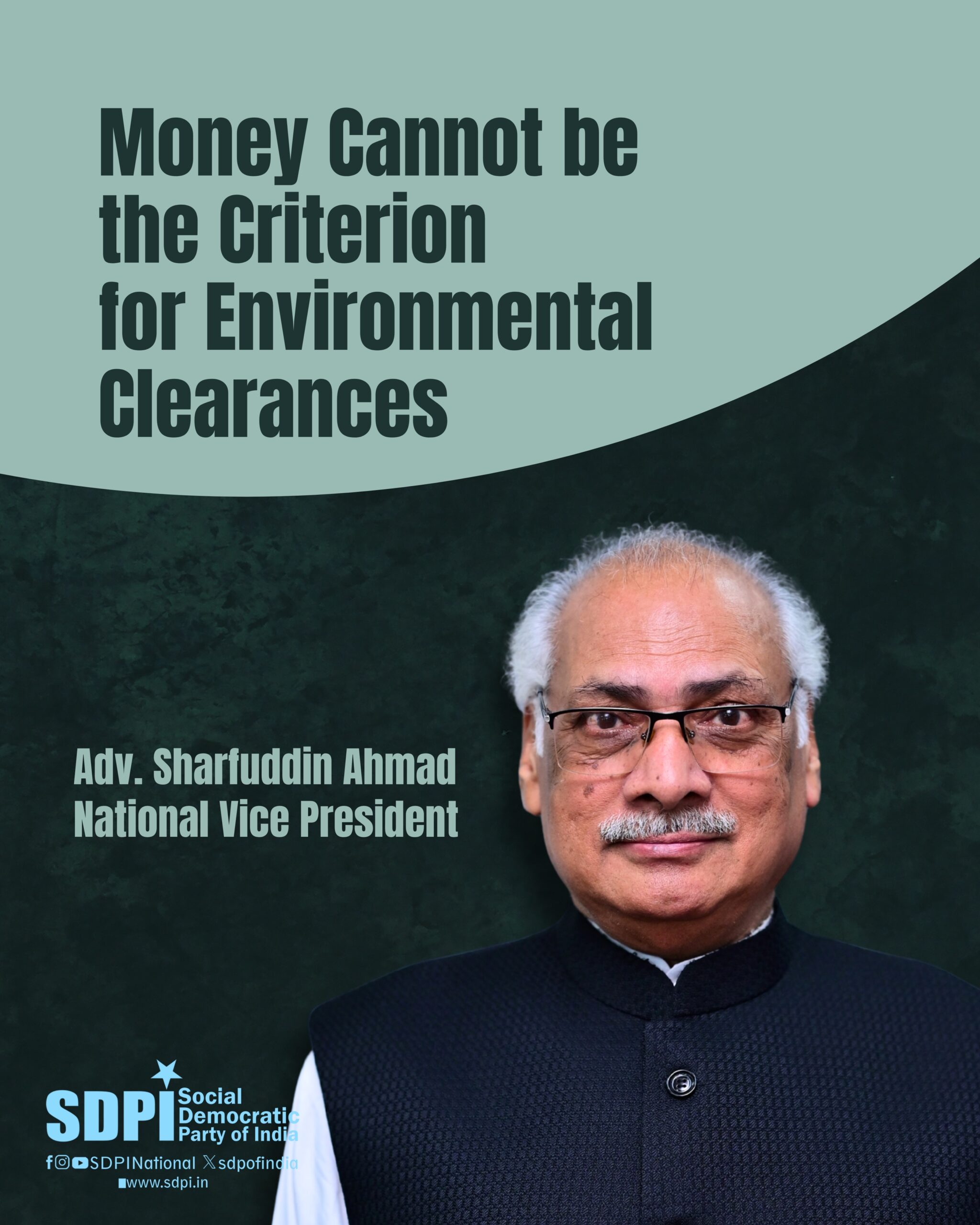
Money Cannot be the Criterion for Environmental Clearances
The Supreme Court verdict this week allowing the practice of providing Environmental Clearance (EC) to various projects, even in environmentally sensitive areas, after the construction has been completed is a decision that raises some serious questions.
The three-member bench of the Supreme Court was divided in its opinion and the verdict withdrew an earlier judgment issued by the Supreme Court in May this year, prohibiting the Central Environmental Authorities from issuing clearances ex post facto, that is after the completion of the construction work of the project. The May order was issued by a two-member bench, and now a three-member bench is recalling it, though only two members of the present bench supported this decision. Hence it is likely that the matter may once again come up for consideration of a larger bench of the Supreme Court in the coming days.
But the grounds on which the Supreme Court arrived at its majority decision itself are problematic. The court’s major point was that if its May 16 order strictly disallowing any post facto clearances are allowed to continue in operation, it would have a “devastating effect” and “thousands of crores of rupees would go to waste.” The Chief Justice, B R Gavai, in his majority order, has said that striking down retrospective clearances would lead to demolition of multi crore rupees worth of private and public investments. He said around Rs. 20,000 worth of projects, carried out by both the Central and State governments, would have to be demolished if the post facto clearances were not respected. Indeed, there are much bigger private investments carried out in clear violation of environmental rules. Hence the court’s majority view is that these projects could be allowed to continue on payment of stiff penalties.
But anyone familiar with issues of environmental safety will point out that such clearances cannot be based only on pecuniary considerations. They are to be considered on various other parametres like the damage such projects could have on environmental safety in sensitive areas, their impact on local people like tribals whose livelihood depend on the natural resources that might get destroyed because of the projects, the long term impact these projects might have on our ecological sustainability, and so many other factors.
The CJI, defending his decision, has raised the question whether it would be in public interest to demolish all these projects and throw the money invested on them into the dustbins. For him, such a course of action would be counter productive. The country’s desire for faster economic development and its need for generating larger numbers of jobs call for a more pragmatic approach.
But we need a more careful and caring policy on issues of environmental clearance, as the present “pragmatic” policies being upheld by the Supreme Court could ultimately prove more costly and damaging for our environment as well as to people’s livelihoods. This has been our devastating experience in the country, where millions of people who had to flee from development sites ended up in city slums, as development refugees. This is something that we have seen in all parts of India, and the majority of victims of such fasttrack development projects are poor people like Muslims living in peripheries, Dalits and Tribals. The reason is that they have very little political clout as they live in the margins of our society. This is also one reason why sometimes people resort to violent methods for expressing their protest and anger, again inviting a fresh round of state repression and retaliation. Hence, any hasty steps to enable violation of rules for the sake of development cannot be encouraged as they take us to an endless cycle of misery, violence and repression.
Adv. Sharfuddin Ahmad
National Vice President


No Comments